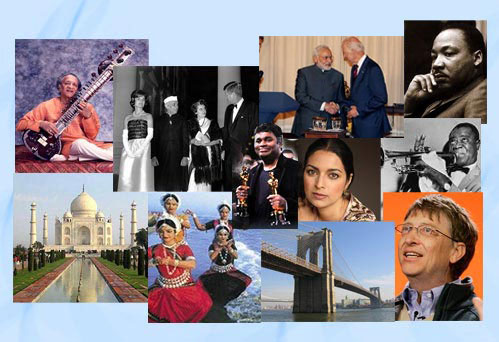 |
 |
 |
|
|
| Press Release |
| SUNDAY, NOVEMBER 28, 2010 |
| Indian Constitution and the US Bill of Rights |
|
Indo-American Friendship Association, New Delhi organised a panel discussion on the "Indian Constitution and the US Bill of Rights" at the Constitution Club of India, Rafi Marg New Delhi on Wednesday, Oct 27th at which Shri Veerappa Moily, Honb’le Minister of Law & Justice was the Chief Guest.The renowned legal expert and former Attorney General of India, Shri Soli Sorabjee chaired the proceedings while the veteran Advocate and Constitutional Expert Subhash Kashyap, Dr Abid Hussain, former Indian Ambassador to the US and Donald Lu, DCM at the American Embassy constituted the panel. While welcoming the guests, Amb.Surendra Kumar founding President IAFA, underlined that on the eve of President Obama’s visit, it was worth remembering that India and the US had enjoyed strong linkages even at the time of the dawn of India’s independence and our founding fathers didn’t hesitate to borrow certain aspects of the US Bill of Rights while framing the Indian constitution. He expressed the hope that President Obama’s historic visit will bring the oldest and the largest democracies closer and nearer in spite of differences in their perceptions of several issues and produce mutually beneficial results. He reiterated that IAFA provides a platform for the opinion makers from different walks of life in India and the US for a dispassionate, objective & mature discourse on issues of interest to India and the US and create greater understanding and appreciation of each other’s policies/decisions/stands and build bridges of friendship. While referring to the US Bill of Rights, the DCM at the American Embassy in New Delhi, Donald Du, stressed that though it provided several rights and freedoms, it must be borne in mind that the US Bill of Rights reflected it’s time; right to own weapons and right to shoot, for example, must have been very basic needs three hundred years back but seem incongruous today’s world. Don Lu underlined US –India links by mentioning the “Boston Tea Party” when in 1773 in British colony of Massachusetts,locals boycotted and threw ship load of tea (brought from India by the British East India Company) in the sea as a mark of their protest against the Tea Act passed by the British Parliament. This protest is considered a key development contributing to the growth of American Revolution. Veteran Advocate of the Supreme Court, Subhash Kashyap concurred with the view that rights and freedoms provided by the Indian Constitution have, over the year, been eroded and diluted. In his view, the US Bill of Rights offers much wider rights and higher freedoms than the Indian Constitution. Former Indian Ambassador to USA, Dr Abid Hussain eloquently pointed out that the Framers of Indian Constitution were trying to incorporate three streams of thoughts while drafting various Articles & Schedules of the Constitution ie Hindutva reflecting the history ,culture and social norms of the Hindu majority of India, pluralism and secularism reflecting the bewildering diversity of India in terms of religions, beliefs, customs and traditions so essential for protecting the federal system of admn largely influenced by Mahatma Gandhi, Nehru & Tagore and the modern outlook (liberty, equality, non-discrimination on the basis of caste, creed, religion or gender, freedom of expression etc), for addressing future underling the vision of Nehru. The incorporation of these three streams has enabled the Constitution rather well, notwithstanding various amendments. Chairman of the evening Soli Sorabjee stressed that no right or freedom provided for in the Indian Constitution is absolute; it can be suitably contained/curtailed for addressing issues such as public order, peace, harmony, decency, sovereignty, national integrity etc etc. He further added that the influence of the US Bill of rights is more visible on the provision of the Directive Principles of the Indian constitution which constitute the social and economic vision for the Govt. But he clarified that Dr BN Rao who was the Secretary of the Constitution Drafting committee had visited several countries such as USA, UK, Australia, Canada so he had picked up ideas from the Constitutions of these countries which were considered appropriate for India’s needs. He underlined that both the American Constitution and the Indian constitution include one common potent tool for protecting larger interests and checking the excesses of the Govt. of the day, it is the provision of Judicial Review Without which many rights and freedoms will remain on paper only. |
| Copyright © 2011 Indo-American Friendship Association, New Delhi chapter. All rights reserved. |
| Maintained by Communications Advisor: Jasmeet Pal Singh |
